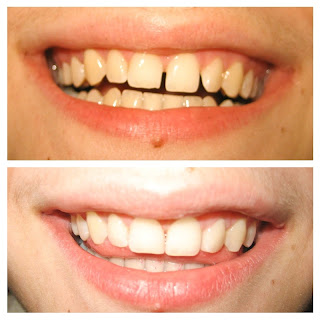Parm SAYS!
 Does thumb sucking cause problems with the teeth?
Does thumb sucking cause problems with the teeth?
New parents are usually delighted to see that their child has managed to soothe himself/herself through the habit of thumb sucking, as it stops the baby from crying. To temporary distract the young one from hunger or other stress, some parents may actually encourage thumb sucking. Babies usually discover their thumbs as early as in the womb. At first it may be cute and quite helpful, but there comes a time when parents may need to reconsider the start of this habit.
Will it help my child or will it cause more problems in the long run?
The thumb sucking habit was more common and accepted in the past, but more and more people are finding out the disadvantages to prolonged thumb sucking. When it becomes a habit, it is often difficult to change this habit in children. The alleged dangers of sucking on a thumb are becoming evident. It is extremely common for most babies and children to suck their thumbs at some point or another. Sucking on a thumb or any finger is a normal reflex in children that soothes them in times of stress. Many children outgrow the habit on their own, but for some it turns into an attachment tough to lose.
So does thumb sucking affect the teeth?
Well, it depends on the age and intensity of the situation. This habit most often doesn't harm the baby teeth. If this habit persists at the age of 6 when permanent teeth start erupting in the mouth, it may cause damage to the permanent teeth. This damage could include abnormal alignment of teeth, known as a malocclusion, damage to the structure of the roof of the mouth and also among the most common dental difficulties buck teeth, when the pressure of the thumb pushes the top teeth out and away from each other. Any of these situations could also cause speech problems or lisping. Once the child stops sucking his/her thumb, malocclusions in the mouth should correct themselves but any movement of the teeth will probably need dental work. If a child places a thumb in his or her mouth only occasionally, with little to no sucking, then it's less likely to cause a permanent problem. Children may decide to continue sucking their thumb out of exhaustion, comfort or boredom. It is suggested that only positive reinforcement be used to stop children from sucking on their thumbs as opposed to negative comments, which may only increase the stress and as a result cause more thumb sucking. To help stop this habit, it has been suggested to put socks or gloves on their little hands, particularly at nighttime. As a last resort, the children may be suggested to have a dental device that can be attached to the roof of the mouth which usually make it painful to suck a thumb. A less invasive treatment would be to recognize that kids tend to suck thumbs when they're stressed. If the child is facing some sort of pressure or anxiety, just comforting the child's worries may ease their need to turn to their thumb. For more further information, contact Dr. Dimovski's Dental Office.











